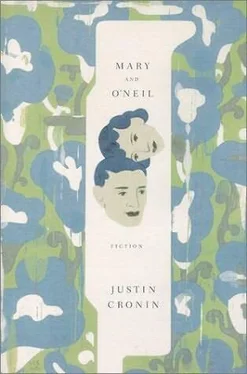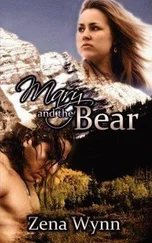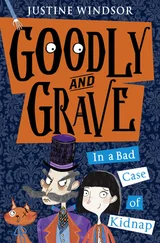His mind does not dwell on this, but turns to the weather, on which everything depends. While he has watched Simone cross the lot, the clouds seem to have thickened, congealing overhead in a portentous way. The wedding is scheduled for noon, in the meadow high above his sister’s house, five miles away. The meadow is reachable only by a narrow path; if it rains, even a quick shower, the path may become too muddy for their guests, or worse, it may wash out. In any event, the meadow will be soaked. O’Neil begins to worry, and so he rises, hurriedly washes his face and brushes his teeth, and puts on running clothes to go up the hill behind the hotel to have a look. It was clear, he remembers, when he first woke up, but now he doesn’t know what it’s going to do.
O’Neil is sitting on the bed, pulling up his socks, when there is a sharp knock on the door and Stephen, the best man, pokes his head into the room. His hair is wet, and his cheeks are smooth from shaving; he looks remarkably alert, O’Neil thinks, for someone who drank nearly all night, especially the sour, heavy beer made in the hotel’s microbrewery. It was good beer, O’Neil remembers, but not the sort of thing to drink too much of.
“I can’t believe it,” Stephen says. He sits down heavily on the empty bed next to O’Neil’s. “You’re going running? Go back to bed.”
“Is that what you’re wearing for the wedding?” Stephen is dressed in jeans, old sandals held together with electrician’s tape, and a T-shirt that reads “I Am a Womanmade Product.” O’Neil frowns, remembering Simone, her slow progress across the parking lot, like a model on a runway.
“Relax, will you? This thing is hours away. Have a beer. You want a beer?”
“I’m running up the hill.” O’Neil has begun to lace his shoes, one-hundred-dollar Nikes with molded orthotic inserts to balance his wobbly knees. Climbing a steep hill seems a good way to begin the day of his marriage, a suitable purification, but as he leans over to tie the laces a watery dizziness fills his head and the energy that launched him from bed departs, leaving him exhausted and frightened. He has to take a deep breath, then another. Then the feeling passes; he is fine.
“I don’t know about this weather,” he manages. “What’s it doing out?”
“Little of this, little of that.” Stephen fishes in the pocket of his jeans for a cigarette, which he lights and leaves in the corner of his mouth, his right eye squinting artfully above the trail of smoke. “I hate to tell you, but Mary warned me you might try to bolt”-he gestures broadly at O’Neil, now dressed to run-“and you’re not going anywhere.”
“So come with me. It’s not far. How late were you up, anyway? I heard you for a while out there.”
“Don’t know.” Stephen shrugs. “Two or so. Connor’s still asleep.” He looks at the end of his cigarette and frowns acidly. “You know, this really tastes bad.” He crosses the room to find an ashtray and crushes it out. “All right,” he agrees. “I’ll meet you out front. This should be a lot of laughs for you. I can’t run at all.”
Outside, O’Neil sees he was right about the weather. The breeze has picked up, and heavy clouds have gathered from the west and south, over the hill that stands behind the inn. At his car he kicks aside the broken glass, steps back, and places one foot on the bumper to stretch out the calf. His lower back is tight, but the leg stretches out fine, and he holds the position for ten seconds, feeling the muscle grow warm and pliable before he changes to the other leg. He does his hams, his quads, each exercise bringing him closer to the moment when he will feel that he has moved into his body, and his day can begin. He is sitting on the grass, his knees apart and the soles of his shoes perfectly aligned, when the screen door slaps and Stephen trots into the yard. He has changed to jogging clothes: cutoff shorts and a fresh T-shirt, sleeveless this time, with the emblem of a cruise line printed across the front. On his feet he wears black high-tops with plastic orange basketballs embedded in the tongues. The leather actually looks buttery, O’Neil thinks.
“Don’t you have any other sneakers?” O’Neil nods glumly at Stephen’s feet. “Those will give you shin splints, believe me.”
Stephen has begun, mockingly, to do jumping jacks, slapping his hands in the air over his head and counting numbers at random: “Six, fourteen, a hundred and eight.” Then he drops to the ground and does five snappy push-ups, wheezes hard, and collapses on the moist grass. “You know,” he moans, “the problem is I love to smoke. I mean, I truly love it. It would break my heart to quit.”
It is nine when they set off together down the drive, O’Neil holding back a little to let Stephen set the pace. O’Neil doesn’t quite know where he’s going, but he thinks there must be a way up the hill, something with an obvious name: Top of the World Road or Bella Vista Lane. From there he should be able to get a good look at what’s headed in their direction. The wedding is three hours away, and though a tent has been erected in his sister’s yard as a backup, it is important to both O’Neil and Mary to be married outside. They came up with the idea months ago, when there was still an inch of gray snow in Philadelphia and spring seemed a long way off. On the invitations, they wrote no address, only “The Meadow, Hanford, Vermont,” and shaded the paper with pastels: a stroke of green for the earth, blue and pink and bits of brown to hold the sky above it. It was a fun night, coloring the invitations at the dining room table of their small apartment, and O’Neil and Mary finished a bottle of wine while they worked, as they had done when they were first together and nervous with one another. But this was different. They were making wedding invitations.
O’Neil and Stephen run for a while in silence, under heavy trees that obstruct their view of the sky and the weather it contains. They are circling the hill, O’Neil knows, skirting its base, but there doesn’t seem to be any way up. Beside him, Stephen breathes heavily, and once in a while O’Neil pulls back to let his friend catch up. Stephen is holding his arms too high-as if he were carrying a pile of wood, when they should be closer to his waist to open the chest-and he is running on his toes, which scuff noisily when he lands. This will hasten the shin splints his heavy sneakers have already guaranteed, but O’Neil decides not to say anything. After about a mile they pass a big house with a barn and two speckled horses grazing on the front lawn; a dirt road veers to the right, along the edge of the property. A bent sign at the roadside reads, Skyline Drive, and beneath that, a warning: Minimum Maintenance Road. Someone has shot three holes in the sign, their edges haloed with rust. Beyond, the road turns again to the right and ascends into the trees.
“No way,” Stephen says. He stops and bends at the waist to brace himself on his knees. For a second O’Neil thinks his friend is about to throw up. Stephen gives his head a horsy shake and spits hard onto the gravel.
“Just don’t think about the hill.” O’Neil’s legs feel thick and sore, and he knows that if he stops moving his courage will leave him.
“It’s these shoes,” Stephen says. “I can’t believe you let me wear these fucking shoes.” He spits again and collapses on the ground, bracing his back against the thin signpost. He waves O’Neil on, his eyes already closed. “Here is where my job ends,” he says.
O’Neil doesn’t respond, and starts up the hill alone. He guesses it’s a mile at most to the top, but he runs easily in case the distance has deceived him. It surprises him, how bad he feels. Though he has slept only six hours and that not well, he hasn’t run for three days, and usually his body stores the energy. Today he feels as if he’s never run at all; his side aches, his fingers tingle with a strange coldness, and he cannot find the correct rhythm-legs, arms, lungs, the body’s musical sentence in three-quarter time-to match the hill that rises under him, carrying him up into the woods. The road is sloppy from late spring runoff, and O’Neil hears the soft gurgle of a nearby creek, winding its mossy way down the hillside. He passes a small house, then a second, larger one, with a gracious wraparound porch and a hammock slung in the yard, and he wonders how it would be to live up here as his sister does, to raise a family in this country of tall trees and long winters; for a moment he imagines that such a life is what he would like to have someday, believing it but also hoping that turning the idea around in his head will carve a space his jangling body can slide into. When it doesn’t, he thinks about Mary, who is awake by now and dressing for the wedding in her room with her friends, and about the children they may someday have, the kind of work they will do, and the houses they will live in. He thinks about a book he read years ago-a book he loved and had forgotten-about a boy who lives alone in the forests of Maine and befriends the trees and animals. He thinks about his sister, who will stand with him at the altar, her husband and sons; he remembers his parents, how he misses them on this, his wedding day.
Читать дальше












